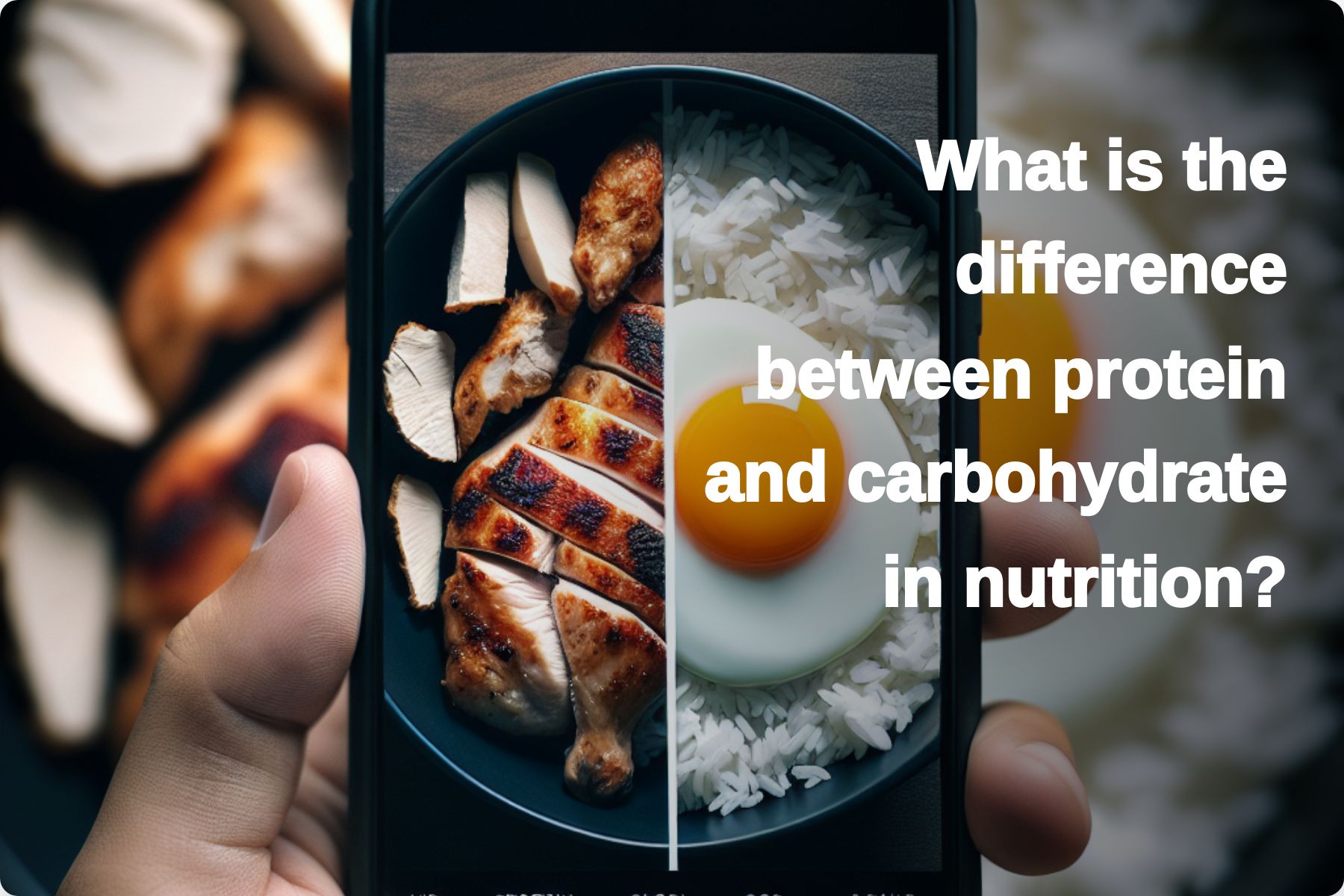
What is the difference between protein and carbohydrate in nutrition?
When it comes to leading a lifestyle, understanding the importance of nutrition is crucial. Nutrition is the foundation of our well being impacting our energy levels, cognitive functions and overall health. At the core of this landscape are macronutrients which are the essential components that make up most of what we eat.
Macronutrients consist of carbohydrates, proteins and fats. These are the powerhouse elements that provide fuel for our bodies. They play a role in maintaining a balance that supports bodily functions. Nutrition goes beyond filling our stomachs; it's about nourishing our bodies with the mix of macronutrients to thrive.
As we dive into the realm of nutrition lets focus on two players; carbohydrates and proteins. While these macronutrients have roles they work together to sustain our health and vitality. Join us on this journey as we uncover the significance of carbohydrates and proteins in our diet and how they contribute to our well being.
Carbohydrates: The Energy Source
Carbs, often known as the main fuel for our bodies, play a big part in keeping us energized throughout the day. Simply put, they're like the power source that keeps us going. Carbs have two main types: simple and complex.
Simple carbs, found in sugars like glucose and fructose, give us a quick energy boost. Imagine them as the express lane for fueling your body, especially when you need a fast energy kick, like before a workout.
On the flip side, complex carbs, found in foods like whole grains, legumes, and veggies, provide a more steady release of energy. They're like reliable suppliers of fuel, ensuring a continuous source of energy throughout the day. This makes them a great choice for keeping your energy levels steady, improving endurance, and supporting overall well-being.
In our busy lives, it's important to understand the role of carbs. They're the go-to energy source for our bodies, helping us tackle daily tasks and activities. Balancing simple and complex carbs ensures a smooth supply of energy, keeping us physically and mentally ready for whatever comes our way. The key is to make thoughtful choices about the types of carbs we eat, aligning our diet with our energy needs for the best performance.
Proteins: Building Blocks of the Body
Proteins, often called the body's building blocks, are essential for our overall health. They have a key role in keeping our body tissues healthy and fixing them when needed, which helps our bodies work well.
In simple terms, proteins are made up of amino acids, the basic units responsible for different body functions. There are two main types of proteins: complete ones, which have all the necessary amino acids, and incomplete ones, which lack some amino acids. Both types are important for our health, so it's good to have a variety of proteins in our diet.
A standout job of proteins is helping build muscles. When we do physical activities like exercising, our muscles get tiny damages. Proteins act like repair workers, helping to fix and make our muscles stronger. Whether you're an athlete aiming for top performance or just want to stay active and healthy, having enough proteins for muscle recovery is really important.
Proteins don't just work on muscles – they also help build different parts of our body, like skin, hair, and organs. They're like the architects of our body, making it strong and helping it stay healthy. Understanding how important proteins are highlights why we should include a variety of protein-rich foods in our daily diet for overall health.
Differences and Contrasts
Understanding the contrast between carbs and proteins is key to making wise food choices. These nutrients have unique roles in our bodies, and we'll explore their variations in structure, function, and overall impact on our well-being.
Firstly, let's see how carbs and proteins are made. Carbs are formed from carbon, hydrogen, and oxygen, creating chains of sugar molecules. On the other hand, proteins consist of amino acids, intricately folded into complex structures. This difference in composition leads to specific functions in our bodies.
Carbs act like a fast energy boost. When we consume them, they quickly convert into glucose, offering immediate fuel for our cells. Proteins, on the flip side, have diverse functions. They aid in muscle repair, enzyme production, and the maintenance of different body parts.
In terms of impact, carbs are crucial for sustaining energy levels throughout the day, especially for activities requiring short bursts of energy, like sprinting or intense physical activity. Proteins, on the other hand, are vital for the long-term health of muscles, tissues, and overall body structure. Their impact extends beyond immediate energy needs to support the ongoing repair and maintenance of our bodies.
Understanding these distinctions helps us shape a balanced diet that fulfils our nutritional needs. Striking the right balance between carbs and proteins ensures a comprehensive approach to health, providing our bodies with both quick energy and lasting support to flourish.
Protein and carbohydrate: An essential partnership
In summary, getting the right nutrition means understanding how carbohydrates and proteins play important roles in our bodies. Carbs provide quick energy, like a fast fuel, while proteins are like versatile building blocks that support our muscles and overall body structure.
The key is to balance how much of these nutrients we eat. Carbs give us a quick energy boost for immediate needs, and proteins help with long-term muscle health and body structure. Finding the right mix ensures our bodies are ready for both short bursts of energy and the endurance needed for daily life.
Think of your diet as a teamwork between carbs and proteins. Use the quick energy from carbs when you need it, and appreciate the lasting support from proteins for ongoing vitality. This balance not only improves physical performance but also supports the various functions that keep us healthy.
This Blog post is an initiative by Lo Foods, to provide accurate and Nutritionist / Doctor approved information related to Health. Lo Foods is India's leading brand for Everyday Functional Foods. Foods designed for specific Health conditions or Needs. Lo Foods also runs India's largest range of Low Carb Healthy Cloud Kitchens, under the brand names of Lo!, ProteinChef, ATH (All Things Healthy) and DiabeSmart.















Leave a comment
Your email address will not be published.